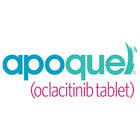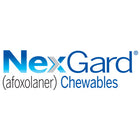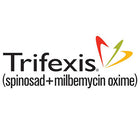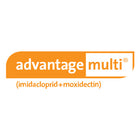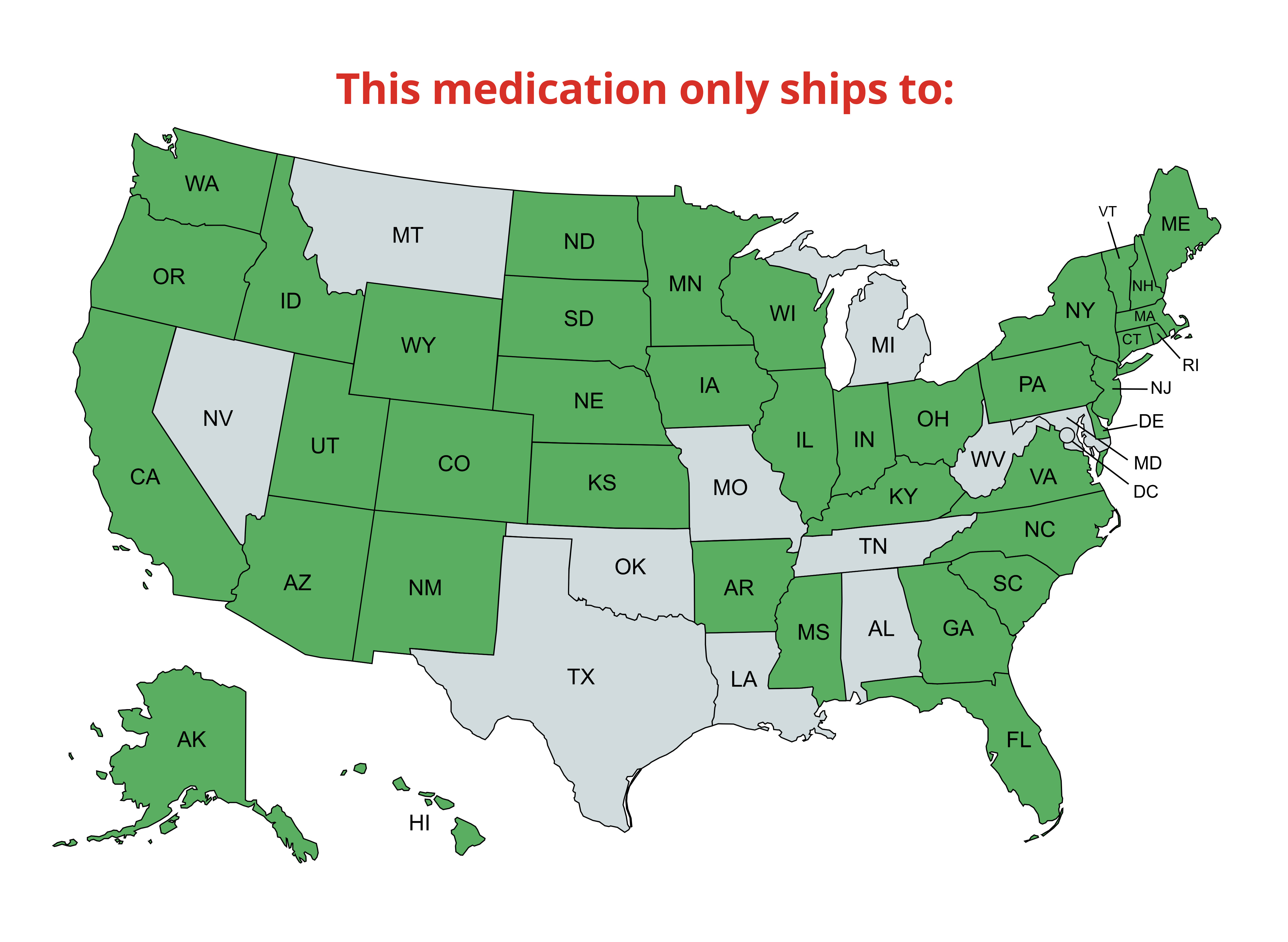
Clintabs (Clindamycin HCl) Tablets for Dogs
Clintabs, containing Clindamycin HCl, are a highly effective, veterinarian-prescribed antibiotic for dogs, specifically designed to combat various bacterial infections impacting skin, dental tissues, and bones. It targets bacterial growth in wounds, abscesses, and deep-seated bone infections by halting protein synthesis in bacteria, thus inhibiting bacterial spread.
Additionally, Clintabs may treat protozoal infections such as toxoplasmosis and babesiosis, extending its utility beyond standard bacterial applications.
Prescription items are NON-RETURNABLE and NON-REFUNDABLE.
Please note product may arrive in a Hardy Paw Pharmacy vial, manufacturer packaging is shown for reference.
What are the Benefits of Clintabs (Clindamycin) for Dogs?
- Broad-Spectrum Bacterial Protection: Addresses multiple bacterial infections, especially effective against Staphylococcus aureus, Bacteroides fragilis, and Clostridium perfringens, which cause severe skin, bone, and dental infections.
- Aids in Bone Infections: Effectively treats osteomyelitis, a painful bone infection, reducing inflammation and accelerating recovery.
- Supports Dental Health: Fights dental infections to prevent further complications, such as abscess formation and tooth decay.
- Easy to Administer Tablets: Clintabs come in an easy-to-swallow tablet format, ensuring straightforward administration for pet owners.
Indications for Clintabs (Clindamycin HCl) Tablets for Dogs
Clintabs are prescribed to treat various bacterial infections in dogs, including:
-
Skin Infections: Effectively addresses wounds, abscesses, and skin infections caused by Staphylococcus aureus, Staphylococcus intermedius, and other bacteria that are common in dog wounds.
-
Dental Infections: Specifically targets oral infections, such as gingivitis and tooth abscesses, caused by bacteria including Bacteroides fragilis, Prevotella melaninogenicus, and Fusobacterium necrophorum. Effective dental treatment helps prevent further complications like tooth loss.
-
Bone Infections (Osteomyelitis): Particularly suited for the treatment of osteomyelitis, an infection in the bone often resulting from bacteria like Staphylococcus aureus and Clostridium perfringens. Clintabs aid in controlling the infection and reducing associated bone pain.
-
Protozoal Infections: In cases of protozoal infections such as toxoplasmosis, Clintabs may also be recommended to help manage symptoms and control infection spread, especially in susceptible breeds.
Clintabs provide targeted, effective treatment for these conditions, improving your dog’s health and quality of life with veterinarian guidance.
How to Administer Clintabs (Clindamycin HCl) to Your Dog?
Dosage Guidelines
-
Wounds, Abscesses, and Dental Infections:
- 2.5-15.0 mg/lb every 12 hours for up to 28 days as prescribed.
-
Osteomyelitis:
- 5.0-15.0 mg/lb every 12 hours for a minimum of 28 days; do not exceed 28 days if the response is insufficient.
Dosage Schedule Based on Tablet Strength
| Clintabs Strength | Weight Range | Tablets Every 12 Hours |
|---|---|---|
| 25 mg | 10 lbs | 1-6 |
| 75 mg | 30 lbs | 1-6 |
| 150 mg | 60 lbs | 1-6 |
Always consult your veterinarian for specific dosage based on your pet’s needs and condition severity.
What Ingredients Are in Clintabs?
- Active Ingredient: Clindamycin hydrochloride, a potent antibiotic effective against a range of bacterial pathogens, especially those affecting soft and hard tissues in dogs.
What Are the Side Effects of Clintabs (Clindamycin HCl)?
Common side effects of Clintabs include:
- Gastrointestinal Upset: Vomiting, diarrhea, and decreased appetite are frequently reported. Persistent or bloody diarrhea warrants immediate veterinary attention.
- Allergic Reactions: Swelling, itching, or skin irritation may indicate an allergic response. Discontinue use and contact your vet if these occur.
Precautions
- Allergy Screening: Avoid Clintabs in pets allergic to clindamycin or lincomycin.
- Drug Interactions: Consult your vet if your dog is on other medications, including vitamins or supplements, as certain drugs may interact with Clintabs.
Warnings
- Long-Term Use: Prolonged use without visible improvement should be re-evaluated by a veterinarian.
- Potential for Diarrhea: Clindamycin, like other antibiotics, may cause antibiotic-associated diarrhea. Monitor your dog and seek veterinary guidance if symptoms are severe.
Contraindications
- Clintabs are contraindicated in pets with a history of hypersensitivity to clindamycin or lincomycin.
- Not recommended for puppies, pregnant or lactating dogs without veterinary guidance due to potential risks to offspring.
How to Store Clintabs (Clindamycin HCl) Tablets
Store Clintabs tablets in a cool, dry place at a controlled room temperature of 20° to 25°C (68° to 77°F). Keep the container tightly sealed and away from direct sunlight, moisture, and extreme temperatures to maintain the medication’s potency. Keep out of reach of children and other pets.
Shipping & Returns
Shipping Policy: We offer all types of shipping options (Ground, Express, Priority, International) depending on the urgency of the product requirements. To know about our shipping policy in detail, click here.
Refund policy: If you face any issue with our product and want to return it, read our refund policy carefully.
FAQs -Clintabs (Clindamycin HCl) Tablets for Dogs
What is Clintabs (Clindamycin HCl) used for?
Clintabs are used to treat bacterial infections in dogs, including skin infections, dental abscesses, and bone infections like osteomyelitis. Additionally, it may help manage certain protozoal infections, such as toxoplasmosis, under veterinary guidance.
Can Clintabs be used for cats as well?
Clintabs are primarily designed for dogs, but clindamycin can sometimes be prescribed for cats under veterinary guidance. Dosage and indications differ, so consult a vet before using Clintabs for cats to ensure safety and effectiveness.
How quickly does Clintabs start working on infections?
Clintabs often start to relieve symptoms within a few days, though full infection control may take longer. Improvement speed varies based on infection severity, type, and dog health. If no improvement is seen within 3–4 days, consult your vet for reassessment.
Can Clintabs be given with other medications?
Yes, Clintabs can often be given with other medications, but drug interactions can occur. Inform your vet of all medications, supplements, and vitamins your dog is taking to avoid potential interactions and ensure effective treatment.
Is Clintabs safe for long-term use?
Clintabs are usually intended for short to medium-term use. Long-term use requires close veterinary supervision to prevent antibiotic resistance and monitor for side effects. Always follow your vet’s prescribed duration and dosage.
What should I do if my dog misses a dose of Clintabs?
If a dose is missed, administer it as soon as possible. However, if it’s close to the next dose, skip the missed one and resume the regular dosing schedule. Avoid giving two doses at once to prevent overdose.
Can Clintabs cause allergic reactions in dogs?
Yes, some dogs may experience allergic reactions, including swelling, itching, or difficulty breathing. If your dog shows these signs, stop the medication immediately and contact your vet for further guidance and potential alternatives.
Are there dietary restrictions while using Clintabs?
Generally, there are no specific dietary restrictions when using Clintabs, but giving the medication with food may help reduce gastrointestinal upset. Consult your vet for tailored dietary advice, especially if your dog has other health concerns.
Can Clintabs be used for infections other than skin, dental, and bone?
While Clintabs are primarily prescribed for skin, dental, and bone infections, they may also be used for specific protozoal infections like toxoplasmosis in dogs. Consult your vet for any off-label uses based on your dog’s health needs.
How do I know if Clintabs is effectively treating my dog’s infection?
Improvement signs include reduced swelling, less pain, and a more active behavior in your dog. If symptoms persist or worsen after a few days of use, reach out to your veterinarian for an evaluation and possible treatment adjustment.
Clinical Research:
https://dailymed.nlm.nih.gov/dailymed/fda/fdaDrugXsl.cfm?setid=4826927c-b0ea-4772-9d0d-8e8934a598e6
https://animaldrugsatfda.fda.gov/adafda/app/search/public/document/downloadFoi/1064
Recommended for the Clintabs (Clindamycin HCl) Tablets for Dogs, 150-mg
Product title
Vendor
19,99 lei | 24,99 lei
Product title
Vendor
19,99 lei | 24,99 lei
Product title
Vendor
19,99 lei | 24,99 lei
Product title
Vendor










